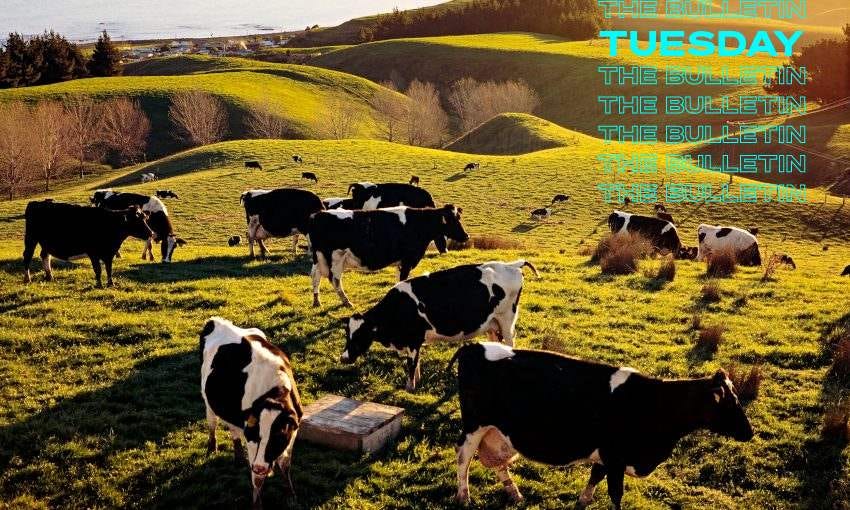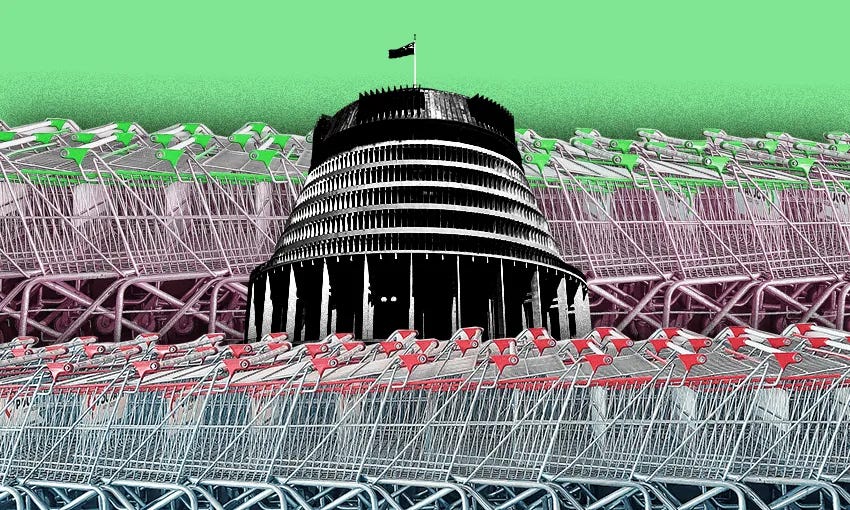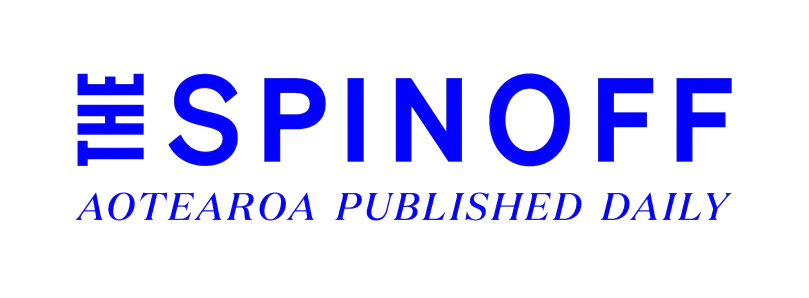Agricultural emissions plan to be released
In 2019 the government agreed to a proposal from the primary sector to develop an alternative to the ETS for agricultural emissions. This week, the plan will be made public
Mōrena and welcome to The Bulletin for Tuesday, June 7, by Anna Rawhiti-Connell. Presented in partnership with Z Energy.
In today’s edition: lower vaccination rates to be revealed; 83,000 breast and cervical screening tests overdue; UN bid to stop extradition; but first, plan to tackle agricultural emissions released this week.
A plan for agricultural emissions will be released this week (Photo: Getty Images)
Deadline for agricultural emissions plan met
In October 2019 the government agreed to a proposal from the primary sector to work together to develop an alternative system to the Emissions Trading Scheme (ETS) for measuring, managing and reducing agricultural greenhouse gas emissions. The partnership initiative, He Waka Eke Noa (HWEN), has involved various agricultural bodies, the ministries for the environment and primary industries and consultation with the sector. Farmer’s Weekly summarises some of that consultation feedback here with 99% of farmers saying they don’t want agricultural emissions to be priced through the ETS. HWEN had a deadline of May 31 to come up with the plan otherwise the government could roll agriculture into the ETS. On Wednesday morning, the plan will be made public.
Plan will quieten claims “agriculture is a climate action truant”
In this analysis (paywalled) from the Herald’s Andrea Fox, HWEN programme director, Kelly Forster, says the plan will quieten claims “agriculture is a climate action truant”. Speaking to The Country last week, president of Federated Farmers Andrew Hoggard said farmers will definitely be better off than what they would have been under the Emissions Trading scheme (ETS). Greenpeace issued a press release on May 27 saying they will be scrutinising the numbers to make sure “they don’t get away with cooking the books to appear more ambitious than they really are”.
Issue creates schism among farmers
To say this issue has been fraught is an understatement. Many commentators and climate action groups have been highly critical of what they view as a carve-out for agriculture in our climate policies and unwillingness from the government to take on the country’s biggest emitters. When the Emissions Reduction Plan was released in May there were complaints about agriculture being given research funding when it wasn’t contributing to the ETS. Pete McKenzie has written for The Guardian about the schism that’s emerged among the sector itself. Disaffected farmers have become involved with the Groundswell movement and taken to the streets to protest the government and express their dissatisfaction at their traditional lobby groups like Federated Farmers and Beef+Lamb, who’ve been part of HWEN.
A complex situation for farmers
Sitting here this morning in my Auckland house drinking my fancy milky coffee, I am exactly the kind of person farmers might say doesn’t have a clue about what they’re being asked to grapple with. I really recommend reading Nicola Harvey’s December 2021 North and South story “The fight for the future of farming”. It succinctly explains the various scientific schools of thought on agricultural emissions and explores the tension and complexity for farmers. Harvey spent time with farmers throughout the country and writes: “Many New Zealanders see this group as the primary obstacle to the government’s attempts to introduce lasting environmental reforms that will ensure the country lives up to its clean green reputation. But in my travels I found a much more complex situation.”
A message from senior writer Alex Casey:
Earlier in the year we published When the Lessons End, an in-depth examination of one woman’s experience at the hands of her private music teacher, and the impact it had on the rest of her life. Stories like these take months of rigorous reporting, travel costs and hefty legal fees to get to publication stage, all of which was only possible thanks to our members.
I feel so lucky to work for an organisation that encourages long-form investigative journalism, but the reality is that this work is impossible without the ongoing support of our readers. If you can, please support our work by donating today.
True vaccination rates to be revealed
The Herald is reporting that work is underway to review the datasets used to calculate the country’s vaccination rates. Rates will be lower than touted as a result. The Ministry of Health used health service utilisation (HSU) data which counts those who engaged with the health system during 2020. Back when we were obsessively checking vaccination rates you may have noticed that rates were often different depending on where you were getting your information. Up until October last year, Stuff used Statistics NZ population data as they believed it was more accurate which meant they reported lower vaccination rates than the ministry. HSU data is regarded as flawed and known to undercount Māori. In December, the Waitangi Tribunal found that the Ministry of Health's data collection "does not collect sufficient data to accurately and equitably inform the rollout of the vaccine for Māori".
Nearly 84,000 people missing screening appointments for breast and cervical cancers
As Stuff’s Hannah Martin reports, data from the National Screening Unit shows that as of December 31 just under 50,000 mammograms were needed to reach the breast screening coverage target of 70%. In a letter to the petitions select committee in March, the Breast Cancer Foundation said participation in the mammogram screening programme has dropped to levels below 10 years ago since the Covid lockdowns. The Spinoff’s Pacific communities editor Sela Jane Hopgood recently wrote that Pacific women have experienced the biggest decline in screening participation, due in part to the prolonged lockdown restrictions in Tāmaki Makaurau. 34,000 cervical screens were needed to reach pre-Covid coverage levels. A long-awaited self-test for cervical cancer will be available from 2023.
There has to be a better way to get on the property ladder than buying 50 years ago. With the prospect of owning a home, a mere dream for so many, the option to Co-own might be the solution people are looking for. Co-own lets you team up with friends and whānau to buy a home. Taking the first step towards owning your own home can be a long, scary prospect, but Co-own could make it feasible for you sooner than you think. To find out if Co-own would work for you, visit the Kiwibank website. (Sponsored)
Next phase of Kyung Yup Kim extradition fight begins
Exactly a year ago, the Bulletin featured a story from The Guardian’s Tess McClure about a Supreme Court judgement on the extradition attempt by China in the case of Kyung Yup Kim. Kim is a Korean-born permanent resident wanted for murder in Shanghai. Kim was arrested in New Zealand in June 2011 and has been in custody since. He maintains his innocence and is continuing to fight extradition. On Friday his lawyer Tony Ellis sent a complaint to the United Nations starting the process for Kim’s claim to have the extradition process stopped, alleging human rights violations. The UN case asks for “interim measures” to stop the extradition pending a full decision which is likely years away. The Detail covered his case and our extradition laws last month.
Got some feedback about The Bulletin, or anything in the news? Get in touch with me at thebulletin@thespinoff.co.nz
Right now on The Spinoff:
Jacob Flanagan picks out the big wins for shoppers in the government’s recent supermarket shake-up; Mat Henderson explains how Māori get caught up in Australia’s 501 deportation system; Chris Schulz looks at whether the health claims made by the burgeoning ‘wellness tonic’ drinks sector actually stack up; and Sam Brooks argues that by disabling screenshots, TV streaming services risk destroying the ability to meme.
Honours for our sportspeople
Plenty of gongs for our sportspeople in the Queen’s birthday honours list including Benji Marshall, Emma Twigg, Grace Prendergast and Kerri Williams. Ross Taylor was made a companion of the New Zealand Order of Merit for his services to cricket and Pacific communities. The Bounce’s Dylan Cleaver wrote this farewell for Taylor after his retirement in April. Lockerroom’s Suzanne McFadden has an interview with new dame and former Silver Ferns coach Ruth Aitken and a run down of the 12 other women who were honoured for their contribution to sports. Gianina Schwanecke has this profile on the “father of waka ama”, Matahi Avauli Brightwell who was made an Officer of the New Zealand Order of Merit.
Not a whodunnit, but a whydunnit
For a feature today, I'll point you to Stuff’s new podcast The Commune. I listened to the first couple of episodes yesterday. Written, reported, produced and edited by Adam Dudding and Eugene Bingham, it’s a 12 part series on Bert Potter and Centrepoint that they’ve been working on for 18 months.











